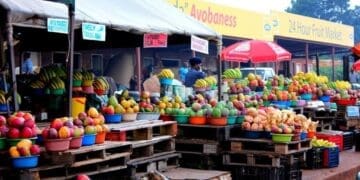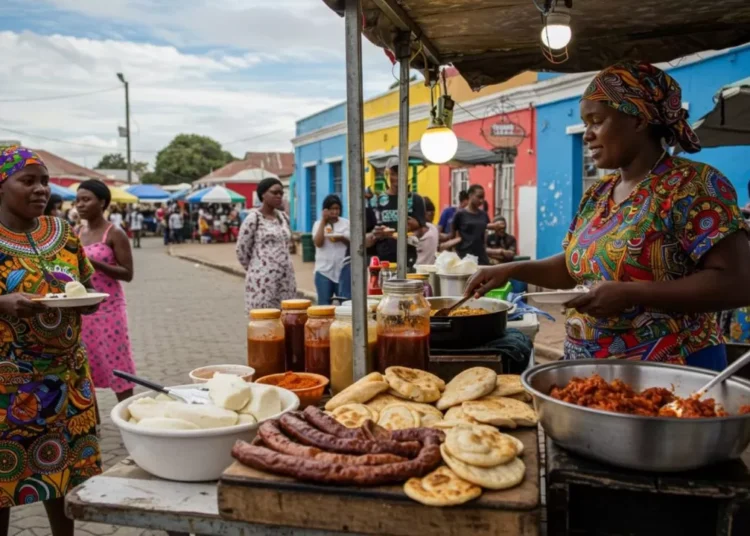In the heart of Johannesburg, Ritshidze Sibadali has been turning traditional dishes into a thriving catering business with Cooking with Ritshidze Pty Ltd. Known for her hearty oxtail, Sibadali has built a reputation for bringing heritage to events across the township.
“I’m a true Venda, and I cook traditional food just like my grandmother taught me, with no fancy spices,” Sibadali told Vutivi Business.
“I cook meals that remind people where they come from. Every dish has a story. When people eat my food, I want them to taste their heritage and feel proud of it.”
Her menu includes skopo, oxtail, mogodu, and cow heel dishes that often spark nostalgia among her clients, whether they are families celebrating or corporates eager for traditional cuisine at events.
However, Sibadali’s business has faced significant hurdles. The outbreak of Foot and Mouth disease has disrupted supply chains, making it difficult to access quality meat and driving up prices.
“This crisis has affected my business badly because oxtail is the most popular item on my menu, and it has been very difficult to get. It’s expensive and inconsistent,” Sibadali said.
“I’m a small business, so I can’t afford to buy in bulk. I usually buy stock for two weeks, and when I go back to restock, it’s often unavailable. It’s really tough, and the situation keeps getting worse,” she said.
Despite these challenges, Sibadali is committed to celebrating her heritage through her business. As Heritage Month approaches, she prepares special menus and bulk orders for events, determined to showcase Venda traditions in every dish.
“Heritage Month is a big opportunity,” she said. “People want authentic meals that remind them of home, from maponi worms to mogodu. I want every dish fresh, full of flavour, and true to the way my grandmother cooked it.”
For Xolani Mathe, the heart behind Skobo Sethu in Sharpeville, cooking traditional food is not just a service; it is a love letter to heritage. When his mother put down her pots and stopped selling, Mathe picked them up, determined to keep both the flavours and the family legacy alive.
“My mother taught me that food is more than just what’s on the plate; it carries memory, culture, and community,” Mathe said.
“Traditional food has a soul to it. When I cook mogodu or skopo, I’m not just feeding people. I’m reminding them of where we come from. It keeps our culture alive in every plate.”
Heritage Month brings a surge in demand for Mathe, showing strong appreciation for cultural food. Yet, he faces significant obstacles, including higher costs and difficulty accessing resources, highlighting the resilience needed to sustain tradition.
“It’s beautiful to see people proudly ordering our dishes during Heritage Month. It reminds us that our food is not old-fashioned. It’s timeless. But it’s not easy, skopo is expensive, and as a small caterer, we struggle to access funding, larger kitchen space, and the right equipment to keep up with demand,” he said.
Meanwhile, Afhulufhedzeaho Olga Mulaudzi reports that the Department of Agriculture has secured 900,000 doses of Foot and Mouth Disease (FMD) vaccine to fight outbreaks in several provinces. Minister of Agriculture John Steenhuisen said the vaccines bought from the Botswana Vaccine Institute for R72 million are being distributed to KwaZulu-Natal, Mpumalanga, Limpopo, Gauteng, North West, and the Free State.
The first 500,000 doses arrived in June and have already been used, while the remaining 400,000 doses started distribution last week. “At the beginning of 2025, active FMD outbreaks were confined to KwaZulu-Natal. Unfortunately, by the end of May 2025, new outbreaks had emerged in other provinces,” said Steenhuisen.






















































